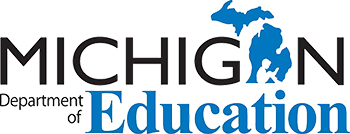News Release

MDE, CEPI Part of New Collaboration to Improve Michigan Schools Through Educational Research Projects
November 27, 2018
LANSING – The Michigan Department of Education (MDE) is part of a unique new government-university collaboration over research projects designed to improve performance at K-12 public schools statewide.
Announced today, the partnership called Michigan Education Research Institute (MERI) includes the Center for Educational Performance and Information (CEPI), the state agency responsible for reporting educational data; and the state’s two top research institutions: Michigan State University (MSU); and University of Michigan (U-M), as well as its data center.
MERI’s goals are to facilitate research projects in education, make data accessible, and improve education for Michigan’s students – outcomes pleasing to MDE and CEPI leaders.
“The Michigan Department of Education is excited to see this formal research partnership established between the state and the two university partners,” Interim State Superintendent Sheila Alles said. “Becoming a top 10 education state in 10 years takes a knowledge of what is happening in our schools now; learning what has proven successful; and using that to develop better practices for all our educators and students.”
Added Deputy State Superintendent Venessa Keesler, "Michigan has long been a leader in research-practice partnerships, and we are committed to using our data and the talents of our research partners to inform not only our work, but to build knowledge around key educational issues.
“The MERI partnership builds on nearly a decade of collaboration and leadership in this area and launches us into the next generation of this work. We are excited to continue to lead as a state in this arena."
CEPI Executive Director Tom Howell said, “As we usher in this new era of state and university collaboration in support of education policy and program analysis, the future is brighter for public education in Michigan.”
A council of key stakeholders, representing education leaders and policy makers from the state, region, and nation, will advise MDE and CEPI in the development of the state’s research agenda that will be informed by MERI’s work.
“This research collaboration will empower and equip our leaders with the research they need in order to make evidence-based decisions that advance just and equitable learning opportunities, assessments, and educational systems for all children in Michigan," said Elizabeth Birr Moje, Dean of U-M School of Education.
A key early project of MERI is to conduct a multi-year implementation study of the state’s Competency-Based Education (CBE) pilot. The project will include surveys of principals, teachers, and students along with site visits at CBE schools.
Researchers hope that the results from the study will help MDE understand how to best meet the needs of schools and districts transitioning to competency-based models and also to understand successes and obstacles in their unique contexts.
Along with addressing research questions, the Michigan Education Data Center, housed at U-M’s Gerald R Ford School of Public Policy, will serve as a clearinghouse for educational records provided to researchers while maintaining the privacy rights of students.
“While ensuring privacy and confidentiality of students’ data, we will be able to learn what works and what doesn’t so our educators can provide the best education for Michigan’s students,” said Susan Dynarski, professor of Economics, Education and Public Policy. Dynarski and Brian Jacob are co-directors of U-M’s Education Policy Initiative.
MERI gives policy leaders a chance to collaborate with top national experts in policy analysis, educator preparation, and school organization.
“I’m excited about the capacity MERI will have to answer questions about the intended and unintended effects of education policies and practices,” said Robert Floden, dean of MSU College of Education. “Important policy areas include charters and choice, assessment of a range of student outcomes, and the preparation and employment of teachers and school leaders.”
MERI is funded in large part by the Laura and John Arnold Foundation.
###
